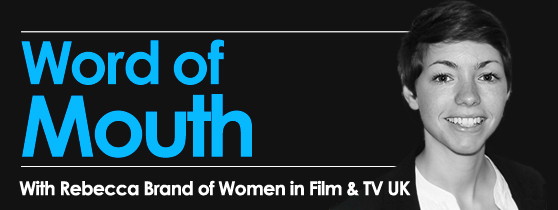
2010 is a big year for Women in Film & TV UK (WFTV). This is the year we celebrate our coming of age. That’s right, we’re 21 years young! But we’re not the eldest in the family. WFTV UK was the third chapter to be established (our older siblings being LA and New York) as part of an international community of women working in the media that has grown to include over 10,000 members within 37 chapters worldwide. Women in Film and TV, as a brand, is well established in the industry, and well respected.
As Head of Communications here in the UK, I’m often asked (usually by men) why there’s a need for our organisation to exist in the 21st Century. I would love to be able to say there isn’t one (even though it would mean I’d be out of a job). But the statistics clearly show that, 21 years on from our founding, there most certainly still is.
The 2009 Skillset Employment census showed us that nearly 5000 women had left the TV industry since the recession, compared to just 750 men. It also found that, in general, women were over-qualified, over-worked and underpaid compared to their male counterparts. Broadcast Magazine’s annual survey of women in the TV industry for 2009 seemed to paint a similarly worrying picture. It found that the gender pay gap, ageism, and sexism had all worsened in the industry since their first survey of 2006.
The story isn’t much better in the film industry. The UK Film Council’s Annual Report for 2009-10, published earlier this year, showed that the number of female directors working on films in the UK had increased 5% since 2008. That’s great… isn’t it? Not when you realise that increase still only equated to 17% in total. The percentage of female screenwriters was also just 17% (which was actually a decrease of 0.3% from the previous year).
But we’re not about focusing on the negative here at WFTV, it’s not our style. We prefer to look to the positive and the practical. Our mission is to ‘support and celebrate’ women in the film and television industry and we do that in a number of ways: from our weekly events programme and networking sessions, to our glitzy annual Awards in December, which honours 12 exceptional women at a ceremony attended by over 900 of the industry’s finest. We produce events at top international film festivals, including Cannes, London and Edinburgh, and work with industry partners to showcase female talent from the UK.
We have also just launched an exciting new mentoring scheme in association with EON Productions, Skillset and the UK Film Council, to directly address the aforementioned findings. We’ll be pairing up 8 women working in TV and 8 women working in film with experienced and inspiring mentors (both men and women) who will help them to reach the next step on the career ladder and keep their valuable skills in our industry.
Of course, it’s a fine line we walk in this role as champions of women. We want to celebrate their achievements, but we don’t want to suggest that they are only gaining recognition because they are women. We need only think back to March, when Kathryn Bigelow became the first female in the Academy’s 82-year history to win the Oscar for Best Direction, for an example of how easily that becomes a negative. Bigelow had barely finished her acceptance speech before some bitter commentators assigned the historic win to her gender, taking the spotlight away from her skill and craftsmanship as a filmmaker.
But it is important to make an example of successful women. Part of the reason that we at WFTV push women into the spotlight is so that they can be role models for others. In 2009, we conducted a piece of research with Skillset, called Why Her?. Classified as a form of ‘positive deviancy’ (the closest research ever gets to sounding sexy), the study looked into the factors that have influenced the careers of successful women in Film and TV in traditionally male-dominated roles, such as sound and lighting. One of the key findings showed that the women interviewed had all had strong female role models growing up, be it their mother, grandmother, a teacher or other. So that, for us, is an important way to get more women into areas of the industry where they are at present underrepresented. They must see that their gender is not a barrier, and that no career path is closed to them.
With everything we do – the events, networking, awards, mentoring – we aim to empower women in our industry to fulfill their potential. In whatever role they may choose, their success is not just positive for them, but will help us to maintain a strong and diverse industry made up of the best talent, irrelevant of gender. As contradictory as it may sound, I look forward to the day that my job is not necessary, but I fear we’ve still got a long way to go yet.
Rebecca Brand is Head of Communications at Women in Film and TV UK (WFTV).